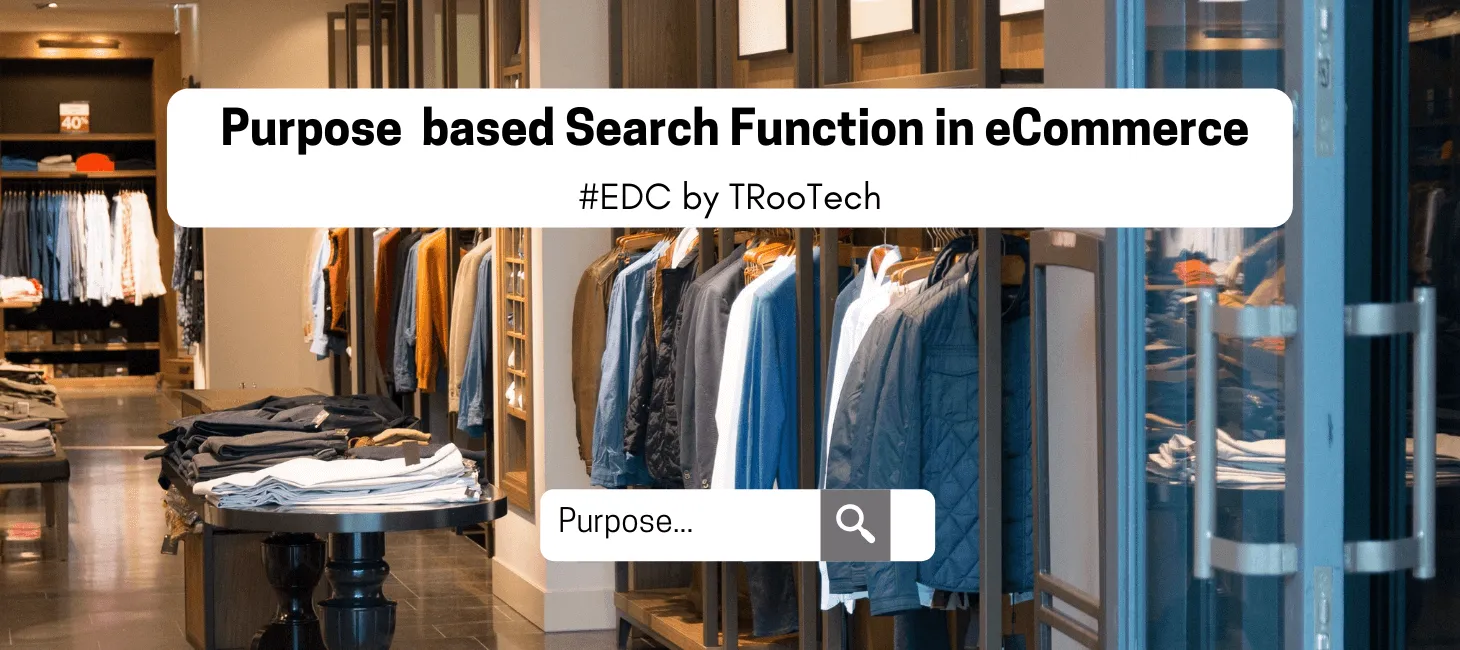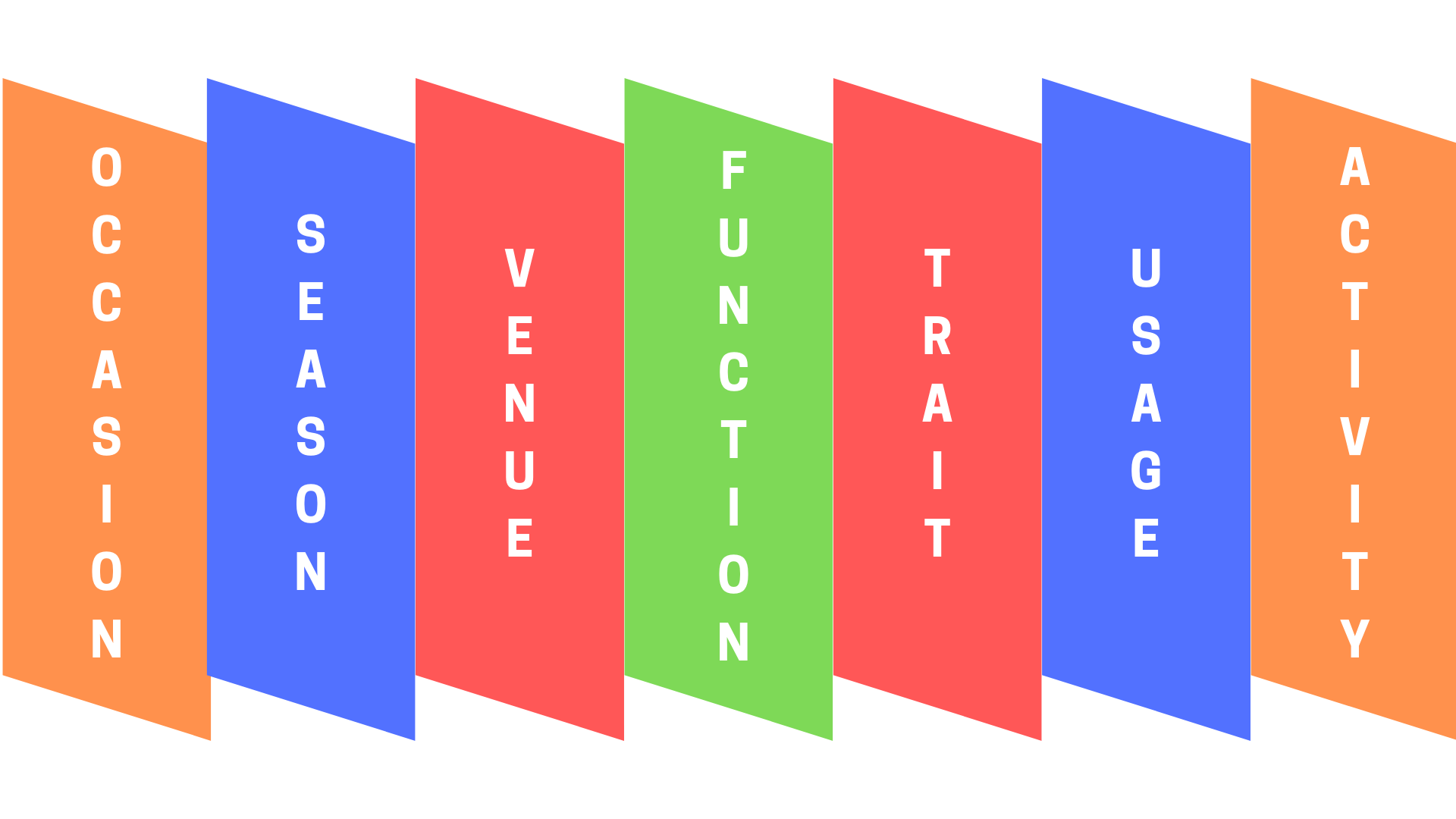This unique eCommerce feature guarantees 42% increase in your sales!

Ever been in a conversation with a heedless entity? Annoyance is at the peak when someone or something is unable to grasp your bearing.
This is exactly what happens when online shoppers are not getting appropriate results on eCommerce websites.
It is a discrepancy when the digital world full of consumer-satisfying supplements fails to meet the shopper’s dialect by providing them a unique eCommerce feature.
It is surely a shocking act when a customer searching for ‘scarfs’ on an e-commerce website gets irrelevant results, despite the fact that it does sell scarfs.
When customers looking for sweaters on a platform get no results because they search for ‘sweatshirts’ or ‘pullovers’ instead of ‘sweaters’.
Online shoppers get errors when they enter quotes or any other symbol while searching on eCommerce websites.
The buyers tend to copy-paste their search from one site to another; which, many-a-times turns unpleasant.
The most prevailing instance is customers getting irrelevant search results on shopping websites. While searching for umbrellas online, a customer gets every other thing in results but an umbrella.
Shoppers also turn soar when their terminologies are not presumed correctly.
For example, many shopping sites do not recognize ‘ft’ as feet, ‘in’ as inch and ml- as a milliliter.
Once a customer has such rough experiences, he is sure not to return on your website again.
The virtual marketplace has extravagant products available as per your needs but it’s of little use if the search engines cannot get expected results.
Let’s get into the shopper’s shoe
Today, when shopping has become a hobby, especially Online Shopping; time and again shoppers are preferring to shop online than otherwise.
However, with the ease and fluency of digitalization, the expectations of customers are also increasing.
They are expecting that the online marketplace will understand all their unsaid needs and requirements even and provide them a unique eCommerce feature. And hence, experiences are aggravating.
For a purchase to be successful, it is essential to satisfy the customer.
Satisfaction comes after the understanding of needs. In a supermarket, it would have become easy for the customer to explain to the keeper what he/she needs.
But in a virtual marketplace, how shall a customer explain his/her needs?
Mostly everything is placed on the aisle of the website.
However, when the shopper is sure of what he/she wants, he/she will type in the search area and hit find. This is the only mode of communication between the shopper and the online-provider.
If we consider a shopper’s perspective while shopping online, myriad thoughts, stimuli, and options come into observation.
No-wonder for the unexpected results.
Let us see what types of searches are made (with suitable examples) by shopper’s online on an eCommerce portal and what results are derived.

- A particular product name/ID search
When a customer wants to buy a particular Bosch dishwasher model.
Typing in Search tab: 800 Series 24″ Recessed Handle Dishwasher SHEM78W56N Black
Results: Your search “800 Series 24″ Recessed Handle Dishwasher SHEM78W56N Black” did not match any products. Here are some related products. - General product search
When a customer wants to buy a hair-styling comb.
Typing in Search tab: Comb
Results: Some sites cannot find any results for ‘comb’, and suggest to check the searched word if ‘combo’ or ‘camera’. In spite of having combs with name hairbrush- in the hair products category of the same website. - Indicator search
When a customer wants to buy a hair-product to use for thinning hair.
Typing in Search tab: For thinning hair
Results: thin liners, hair-bun, thinners, thin towels etc. The site wouldn’t understand the product to use for improving the quality of thinning hair. - Service/FAQ search
When a customer has a query related to return policy and repayment, replacement of order.
Typing in Search tab: Replace.
Results: No such product ‘Replace’. Try another keyword. - Function search
When a customer wants to buy a foldable bed.
Typing in Search tab: Folding bed
Results: Did you mean Fondling bed. Irrelevant results as the website don’t provide the functional role and don’t run the functional search query. - Instinctive search
When a customer wants to buy a cap to protect from the cold breeze in winter.
Typing in Search tab: Winter Cap.
Results: The results show different types of caps and winter wear but not a woolen cap. - Relevant search
When a customer wants to buy books by Paulo Coelho.
Typing in Search tab: Paulo Coelho.
Results: irrelevant results like polo sunglasses, polo t-shirts etc. - Accordance search
When a customer wants to buy power adaptor for his phone.
Typing in Search tab: Charger for Samsung Note
Results: various power adaptors, power generators, Samsung phones, notebooks etc. - Irrational search
When a customer wants to buy fancy footwear. (Fancy may vary from person to person depending upon their choice)
Typing in Search tab: Fancy Sandals
Results: a large range of footwear including men, women, children, simple, ethnic, formal, casual etc everything. Results range from costly to cheap all types of footwear. - Jargon, abbreviation or symbol search
When a customer wants to buy plus size clothes.
Typing in Search tab: + size clothes.
Results: Cannot use symbols/ abbreviations/ slangs in your search. Kindly search again. - Understood search
When a female customer is in the women category of website product listings and is searching for formal wear.
Typing in Search tab: formal suit
Results: Suits for men, women, jackets, skirts etc. - Casual explanation search
When a customer describes in sentence formation what he/she is looking for.
Typing in Search tab: Dress for baby-girl in pink available in size S.
Results: We found 0 results for “Dress for baby-girl in pink available in size S”, use fewer keywords or try these products instead.
Such nuances, however, must be solved and the website can be made user-friendly and comfortable. It is very crucial to generate profits and turn skimmers into buyers by delivering a unique eCommerce feature.
Customers will throw hearts at this unique eCommerce feature
As a solution to bring perceptible communication between the online marketers and the shopper, let’s welcome a powerful and effective tool of Purpose-based Query Search as a unique eCommerce feature for e-commerce search engines.
Why Purpose?
If you think back to the roots, why does a shopper shops?
The first reason is Need. Correct?
There is a need or requirement of a particular product, and that’s why there is an urge to buy it. Secondly, there’s a wish to shop. One buys because one feels like having a particular item.
What is the Purpose?
Apart from the requirement and the desire to shop, a customer has more reasons to shop. Rather more reasons to shop a particular type of product.
Gone are the days when a person buys whatever is available in the market.
Today, customers take acute precision as to what exactly they want to buy.
They have reasons to shop for an event, for an activity, for a place, for a cause, etc. They define their essentials along with the appropriate component.
For example, one would set out to shop if one needs to have an outfit for a specific upcoming event. And that is their purpose of shopping.
You must give your customers a chance of free communication without any barriers and most importantly, the search engine must provide them unique eCommerce feature to get them their desired results. Only then your customers will revisit your website.
Think as if the shopper is talking to a salesman while explaining his/her needs and expectations.
Customers tend to type in search tab what’s in their mind. Literally, yes.
This is what they expect of the seller- to understand what they mean. Whether this seller is a brick and mortar store or an online shopping website.
Customers are buying not just anything available or close to their needs. Rather they assure that the product purchased meets all their expectations/purposes.
Consider the following examples of searches by the customer based on their purpose type for shopping:

Purpose- Occasion
A customer wants to search for a product for specific occasions like wedding, parties, dates, concerts, birthdays, promo-nights, spiritual functions, engagement, social gatherings etc.
Example 1. Little Black Dress for a dinner date
When the shopper is interested in buying a dress which can be preferably worn for a dinner date.
Example 2. Slippers for a night out
When the customer is seeking lightweight flip-flops or furry slippers ideal to be worn with night dress.
Purpose- Event
The buyer searches for items specifically for an event like a sports event, competitions etc.
Example 3. Shoes for a running competition
When a customer wants to buy sports shoes specifically for running competition.
Example 4. Props for fancy dress competition
When parents are searching for specific props for their child’s fancy dress competition.
Purpose- Season
Shoppers search for different products during different seasons. They expect the search engine to give ideal results for winter, summer, and monsoon.
Example 5. Long boots for winter
The customer is expecting warm and long boots to be worn in cold weather conditions.
Example 6. Body lotion for summer
The buyer wants to buy body lotion which keeps the skin hydrated during hot weather.
Purpose- Activity
When the customer searches for a product especially to be used while a particular activity like yoga, painting, exercising, jogging, dancing etc.
Example 7. Daypack for traveling
When the shopper is looking for a daypack bag to carry essentials while on a travel journey.
Example 8. Ear plugs for jogging
The customer wants to buy earplugs best suitable while jogging activity.
Purpose- Style inclination
When the customer is inclined towards a particular style example casual, formal, modern, antique etc.
Example 9. Glasses for a funky look
Here the customer wants to carry a funky/trendy look and is looking for eyeglasses that go with the look.
Example 10. Wall-pieces for an antique theme
The buyer wants to buy art/decor wall pieces specifically in antique theme.
Purpose- Functionality
Many times, a customer searches for a product looking for its particular functionality.
Example 11. Printer for multipurpose use
A customer wants to buy a printer which includes other feature/ services like a photocopy, fax, email, and scan along with printing.
Example 12. Foldable study table
A student wants to look up options for a study table that is foldable, most suitable to her compact study room.
Purpose- Intended usage
Customers search for a product for how do they want to use it. Say it for which purpose they want to use it.
Example 13. Lunch box for office use
Shopper is searching for a tiffin box intended for office use. That must not be a school lunch box.
Example 14. Torchlight for marine research
A marine researcher is looking for torchlight which is waterproof, durable, and long lasting so that it can be used underwater.
Purpose- Trait
Customers describe a product by its monetary preference.
Example 15. T-shirts for a cheap price
The customer wants to buy t-shirts at a cheap price. This may be similar to the price filter set to the lowest range.
Example 16. Music player for a high-quality usage
The buyer wants to shop for a music player that has a very good quality of the sound system and is durable so that it can be used often.
Purpose- Venue/place
Some product searches tend to be bound around a location.
Example 17. Plants for kitchen
The customer wants to buy small plants, shrubs, and bushes, maybe spices specifically to be placed in the kitchen.
Example 18. Art pieces for bathroom decor
When interior designers are looking for artwork suitable to place in the bathroom.
In the current scenario, most of the eCommerce website doesn’t provide unique eCommerce features for shoppers to get them their desired result.
Thus, we come up with the Purpose-based search query as a unique eCommerce feature.
If you look at the above examples, you will find that the customer many a time wants to explain his/her need depending on the purpose of shopping.
Like a person wants to buy a particular outfit because he is participating in a competition.
A human mind can understand the difference between garden furniture and office furniture or dress for a friend’s event and picnic. But what about a shopping website search engine?
Wouldn’t it be great if a machine can grasp your intentions of buying a product and get you the most suitable match available?
This unique eCommerce feature will act as a Savior here.
Just as the seller lists its product in different categories and sub-categories on a shopping site, he/she needs to list one more entity along with that- purpose.
The purpose(s) must be mapped with the product search engine so that when the customer tries to search a purpose based item, he/she gets the desired outcome.
Here the role of the seller will be important as he/she needs to cautiously map different purposes to a product.
Sellers will have to brainstorm and think rigorously about various purposes of a product.
This will give the customers a personal touch.
Moreover, a customer will be so happy and content for buying what exactly matched their expectations.
A satisfied customer turns to be your loyal customer eventually.
This pleasant experience will get him/her back to your website the next time he/she wants to buy anything.
This will procure to your profit, growth, and revenue.
The same happy customer will review your site with good ratings and also recommend it to friends.
What’s in store for all the stakeholders?
What difference will be caused by bringing this unique eCommerce feature (purpose based search query) in the shopping websites?
Definitely, all the shoppers, sellers and the admins of the website will be affected. What measures should be taken by them to incorporate this unique eCommerce feature?
Sellers:
Role: Add purpose tags to each product sold online.
The product sellers should label each of their items with appropriate Purpose tags provided by the admin.
There will be pre-defined purposes provided by the admin. There can be more than one purposes added to one item. For example, one dress can be used for a cocktail party as well as for a dinner date.
Examples of product- purposes:
mattress- night-use, all day use, old-age, kids, hotels, high-quality, etc.
Jeans- casual, rugged, party-wear, funky, trendy, monsoon, summer, picnic, etc.
Bottle- office-use, kitchen, school, high-quality, multi-storage, compartmental, etc.
These purposes will be mapped and synced with the products sold and upon a purpose based search query (unique eCommerce feature), appropriate results will be produced.
Shoppers:
Role: To search according to one’s purpose just as one searches on a Search Engine like Google.
The purpose search will become the customer’s best friend. It will be so easy to use, search and shop online.
They just need to type in whatever is on their mind before shopping and shakalaka-boom-boom!
They get to see what was there in their mind in front of them on the screen.
Getting the expected result will add up to their positive experience and obviously, a happy customer is a loyal customer. There will be overall better experience.
Admins:
Role 1: To prepare a list of purposes for the products sold on the website and provide that list to the sellers.
Role 2: Approve the new purposes added to the product by the seller.
Administrators of the shopping site will have to list various purposes considerately to each category, sub-category, and multiple sub-categories. Purposes like day-use, night-use, office-use, traditional wear, evening party wear, etc can be added.
Identifying and Overcoming the Challenges
Of Course, this is not as easy as it may sound; much thought will be required by the admins to think upon the logical purposes by analysis of the customer behavior and shopping pattern to include this unique eCommerce feature.
You may wonder how can this unique eCommerce feature concept flow so smooth?
Some questions may pop up your mind.
Consider the tentative challenges that might occur in incorporating this unique eCommerce feature along with the sage solutions to them.
Challenge 1:
What if the seller uses a wrong purpose with a product for better ranking in search results?
Solution:
In the case of irrelevant purpose linking to the product; the admin should be given the power to restrict the usage of purpose tags.
There can be a reviewer appointed to review each product with its attached purpose. On qualifying, the purpose will be added to the product.
Challenge 2:
What if the seller doesn’t find the desired purpose in the list provided by the admin?
Solution:
In case the seller doesn’t find an appropriate purpose to use with a product, he/she can request the admin to add that purpose and if the admin finds it accurate and relevant, it will be approved and added.
Wrap Up!
Nobody likes change, but change is inevitable.
People are using online marketplace for a long time now and the e-shoppers have got easy access to a variety of products online.
In evolution, it is not a proud moment if the digital platform cannot meet up to the expectations of the buyers.
Thus, it is high time that we must bridge the gap between the e-shoppers and e-providers.
This unique eCommerce feature – purpose based search query cannot be obliged as a mandate but however, supporting them on your platform will assuredly bring you the perks of being the best shopping place online.
Get back to TRooTech Business Solutions when you have made up your mind.
Follow Us On

